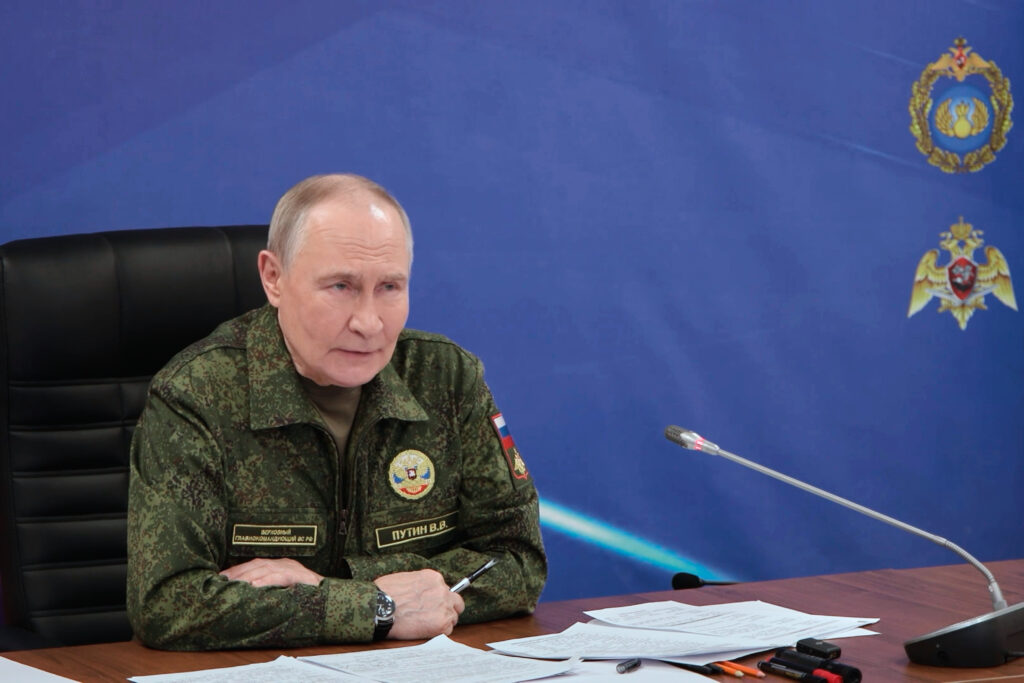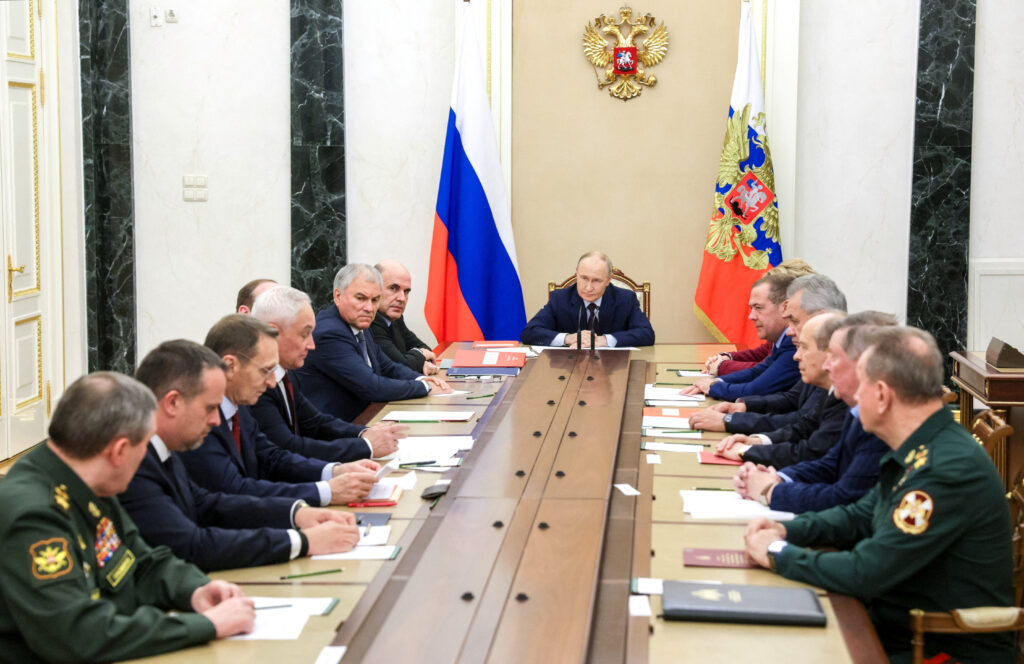The phrase ‘beautiful Russia of the future’ has two components. On the one hand, it is the Russia of the future — that is, Russia after a regime change — that is systemically unable to give the country the necessary potential for growth. On the other hand, it is a beautiful Russia — that is, a country in which corruption is perceived as low and that has a high standard of living. Society and politicians are striving to create the Russia of the future. However, this does not mean that the country will immediately become beautiful. The new leaders may turn out to be politically weak, lacking the necessary knowledge and/or team to implement changes.
Russia can be made beautiful only if there is an iron political will, progressive reform ideas and advanced managerial practices for their implementation. One such idea may be the use of an experimental approach to the implementation of changes. This approach implies the simultaneous implementation of reforms at the local level in several municipalities/regions of Russia. The results of these experiments would then be evaluated and scaled up to the whole country.
Russia’s leaders of the future will again face a choice. They will either start to implement the necessary reforms immediately, or the transition regime will burn itself out, and the country will start another cycle of ‘crisis-centralization-authoritarianism’ through limited development and political stabilisation. At the same time, the necessary changes will be of two types: general federal structural reforms with long-term consequences (tax, administrative, law enforcement agencies, etc.) and targeted changes aimed at quick, visible results.
Despite the systemic importance of the first type of change, it is the success of the latter that will have a legitimising effect on the transition regime as a whole. Smart defence and health sector development prevents war and disease; equal access to quality education helps more people find well-paid jobs; and urban infrastructure development increases residents’ mobility and sense of comfort. The list could go on, but in any case it will turn out that most of the changes will concern the sphere of daily interaction between citizens and the state or the benefits created by the state. However, most of these changes are of a strategic and complex nature. Mistakes in their implementation will irritate voters and lead to the delegitimization of the current government. Moreover, making these changes effective in such an incredibly diverse country will be extremely difficult. An experimental approach to reform, on the one hand, makes reforms more inclusive and effective, and, on the other hand, prevents unintended negative consequences.
Experimental projects for a progressive Russia
Reformative design experiments can contribute to more effective change. Today, this is the most progressive approach to state development. Its peculiarity is that, with the availability of experts and resources, politicians can launch experimental reforms in several areas at once, then test the effectiveness of changes under varying conditions in Russia (because experiments are conducted simultaneously in different municipalities/regions of Russia) and, finally, make adjustments and scale changes to the whole country. Thus, territorial units with the support of the federal centre will be able to become a ‘laboratory’ of changes.
The Russian government recently started conducting experiments, primarily in the digital and financial and technological spheres. In practice, however, these initiatives are more like pilot projects of individual ministries and development agencies. First, there is no uniform procedure for conducting such experiments in Russia, so the initiators see them in their own way. Second, people creating the experiments are often also the same people who are carrying them out, which creates a problem in terms of objectivity in assessing the results of the experiments. Third, there is no generally accepted independent system for evaluating the experiments, although such a system is the fundamental basis for conducting and comparing experimental practices.
One example of the unsatisfactory use of ‘experiments’ in modern Russia was the introduction of the Unified State Exam (USE). In the long run, the USE turned out to be a success, but the implementation of the reform proved to be a nightmare at the initial stage. Exam variants differed in complexity, corrupt regional authorities leaked parts of the exam online, the excessive rigidity of the exam’s questions resulted in correct answers being deemed incorrect, and the questions themselves often did not reflect the knowledge necessary for studying at university. The ‘experiment‘ of introducing the USE de facto completely violated the minimum quality standards and looked more like the ‘step-by-step implementation’ of an idea that had been accepted in advance.
Real experiments should prevent such errors. They should maximise the impact of change by identifying problematic aspects of regulation before scaling up. Experimentation enables the relatively inexpensive and rapid identification of problems in the original action plan, noting the impact of local characteristics and preparing a team of consultants for subsequent extension of the reform to the whole country. The difference in the timing of the implementation of changes between experimental areas and the entire country will be able to ‘alert’ policymakers to unexpected negative long-term effects before they become a federal problem. In the case of the USE, for example, the ‘experiment’ began in 2001 in the Samara and Rostov Regions, Chuvashia, the Mari El Republic and Yakutia. In 2002, the project was introduced in 16 regions. The initial choice of the regions was not justified, and the step-by-step implementation (by 2008 all Russian regions were using the USE) did not allow for optimal error correction. The implementation of effective experiments depends on two macro-factors: the availability of the necessary knowledge and state resources and protection of the implementation of experiments from narrow negative political interests.

From the political point of view, the creation of experimental changes should take place either upon the submission of an informational request by a territorial unit in the sphere of its authority or at the initiative of Moscow in the sphere of federal regulation or with the approval of local authorities if the initiative concerns the authority of the latter. This would preserve the balance of federal relations while not limiting the ability of both regions and the centre to introduce regulatory innovations. In the case of the USE, the regions could not prevent the inevitable.
Then a special legal regime is introduced in the experimental areas and in the sector of state regulation, which makes it possible, in a certain area of regulation, to move away from the general federal and regional norms and to implement progressive changes. This process should be formalised and structured by a separate framework federal law that would determine the conditions of the regimes, their maximum duration and mechanisms for coordination with control and oversight bodies and responsible agencies and authorities. Currently, there is no unified format for experiments in Russia, which complicates not only their analysis but also the quality of their implementation. For example, the experiment with the USE would have to be conducted in one group of diverse regions for two years (taking into account education in grades 10 and 11), after which there would necessarily be a period to work on errors and create updated methodological guidelines and rules for the implementation of the exam. Only after this procedure could the innovation be extended to the whole country.
Not all regions and authorities will have sufficient knowledge and resources to organise experiments. Therefore, the federal centre should support the ‘laboratories’ with financial and human resources (consultants, independent evaluators of the impact of changes, etc.). An independent agency (for example, a separate department of the Accounts Chamber) would evaluate and summarise the results of innovations based on the experience of the territories conducting the experiment and then propose changes to the draft federal reform. The final draft reform would already be adapted to the implementation under different geographical, financial and social conditions. In the process of introducing the USE, work on the initial errors was not discussed at all, which later led to a series of crises at the federal level. They could have been prevented by an independent evaluation procedure and public discussion of the results of the experiment. Separating the executive and evaluative functions would make the process more objective and inclusive of different points of view. The result of the experiments should be a comprehensive federal target programme that would disseminate the changes throughout the country.
However, the scaling up of progressive changes may still face resistance from stakeholders. Their influence will depend on political factors: the existence of a stable coalition in favour of reforms, available resources to compensate for ‘losses’, the popularity of the president and the government, and the accountability of the executive at all levels of government. Recent academic research shows that a highly competitive political environment and electoral pressure from the opposition is conducive to the creation and implementation of experiments. Experiments make the reform process less painful for stakeholders and more inclusive of their points of view. At the same time, the results of qualitative experimentation are difficult to challenge. Therefore, the final decision on extending the reform to the whole country should be made publicly based on the results of the discussion of the results from the regions.
Beautiful Russia vs private interests
No matter how good design experiments are, their implementation and results will still be challenged by a multitude of stakeholders and interest groups. Therefore, creating an effective, transparent and scientifically sound system for the implementation of design experiments is a political challenge.
The implementation of experiments will be accompanied by forced decentralisation of power in Russia. There is a consensus in political and economic science that Russia will not be able to achieve high economic growth under a centralised system of governance. Moreover, fiscal, administrative and political powers will have to be transferred not to the level of regions, which are comparable in size to the EU countries, but to the level of local self-government. This should be accompanied by the creation of political accountability on the part of local leaders to local residents.
According to the International Monetary Fund, the five most prosperous countries in the world in 2020 were Luxembourg, Singapore, Ireland, Qatar and Switzerland. Rounding out the top 20 were Germany, Australia, Belgium, Finland and Bahrain. What distinguishes these countries from Russia? They are territorially small. With the exception of the US, Australia, Sweden, Norway, Germany and Finland, the world’s most prosperous countries resemble the average Russian region or even city in terms of area. The US, Australia and Germany are federations, while Sweden, Norway and Finland are decentralised unitary countries, where cities and local communities govern their territories.

However, decentralisation itself along with the creation of transparent accountability institutions will not bring about rapid economic growth. The decentralisation of fiscal powers, for example, will improve economic development only with the creation of transparent political institutions accountable to citizens and inspection bodies. Otherwise, decentralised funds will simply be ‘eaten away’ by local corruption. In the Russian context, it is most logical to create accountability and transparency from the lowest level of local government, which citizens encounter literally every day. At the same time, in the post-authoritarian conditions of an asymmetric federation, different regions will have different statuses and their own established patrimonial structures. Overcoming the harmful influence of local princes at the regional level will be much more difficult. That is why it will be up to the Kremlin to work out a decentralisation plan for the country.
Experimental Russia of the future
Creating a beautiful Russia in the early years of the transition period will be a challenge. The classical understanding of democratisation implies that different groups in society create democratic political rules to structure their interactions and ensure predictable methods of struggle. This requires electoral and party systems, an independent judiciary, parliamentarianism and other classical democratic institutions. But the consolidation of effective democratic institutions in Russia can only be achieved against a backdrop of an increase in prosperity on the part of the people. That is why the process of creating and supporting democracy in the modern world implies the introduction of effective and inclusive state institutions and practices, which, on the one hand, will smooth out the costs of democratic politics (the influence of the very rich, trends towards the concentration of power, the polarisation of politics) and, on the other hand, will improve technocratic indicators of state policy.
An experimental approach will help to achieve visible results for citizens within the given time frame through a more inclusive and efficient approach to public administration. Qualitative experiments can most accurately predict the outcomes of proposed changes. At the same time, experimental reforms themselves are more inclusive of local players who work at the grassroots level and are often not represented in central government. Greater adaptability of changes to local conditions facilitates the subsequent scaling up to the whole country. Moreover, the organisers of the most successful pilots will have the opportunity to move from public service to political positions. Meritocratic leaders will not appear out of thin air; they will need time to prove themselves in the new environment. And the implementation of experimental reforms in the new Russia can be such a school for them.
*This article is part of the ‘Reforms’ series prepared by Riddle in partnership with Reforum project.









